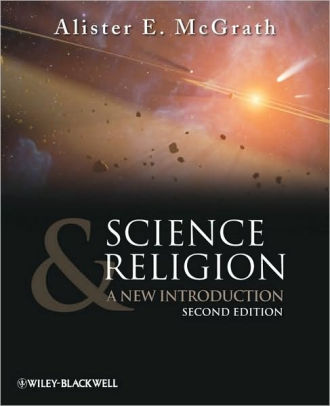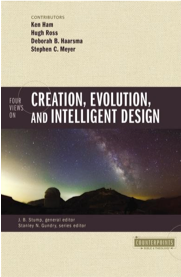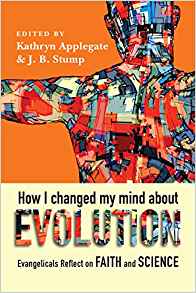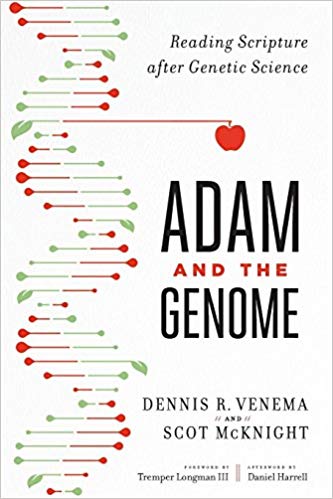It’s January and there’s excitement and hope in the air. Excitement for a fresh start, but also hope that this next 365 days will be better than the last 365. And while many people want 2020 to be the year where they grow financially, relationally, or physically, there are others who simply want to grow closer to God.
Maybe that’s you? Maybe you would say to yourself, Enough is enough. I’m tired of keeping God at arm’s length. I sense the emptiness and aimlessness that comes with not walking with him daily. I want that to change. I want to get stronger spiritually.
But before you start working through all the different read-the-Bible-in-a-year plans, making your kids recite the Apostles’ Creed before they can eat dinner, and attending church services eight days a week, let me give you a caution:
Trying to get stronger can actually make you weaker.
It’s true. I believe you can read the Bible more than you’ve ever read it, pray more than you’ve ever prayed, and consistently attend services at Clear Creek and still end up stagnant, or in even worse shape spiritually than before you started trying.
How’s that? Let me explain. This month, more people will go to the gym than any other time of the year.
Many of them will burst through the gym doors, blow past the welcome desk, and start hitting as many different pieces of equipment as possible – benching as much weight as they can muster, lifting the heaviest dumbbells they can find, and slinging around other weights in whatever motion feels best, all the while thinking, If I just do more I’ll get stronger.
Some of you who know about weight training are cringing because you understand how this approach to lifting has the potential for great injury. You know that when it comes to exercising, technique matters. For example, people are seen in gyms all the time with crooked shoulders because of slightly deformed muscles which is partly due to bad technique. The muscles adapted to incorrect movements and grew accordingly. Experts tell us using incorrect techniques can pull, rip, or wrench any muscle in the human body. It can tear delicate connective tissues in a matter of seconds. That’s the irony bad technique brings. You can hit the gym every day, work harder than anybody else, and actually wind up weaker instead of stronger.
That’s why there is a maxim in weight training: How you do it is as important as what you do.
Technique matters in spiritual training as well. How we do it is as important as what we do.
And if your spiritual strategy for 2020 is to do more (e.g., services, prayer, Bible reading), you should know that simply doing more isn’t good enough.
In Jesus’ day there were a group of religious people called the Pharisees. They did more than everyone around them. They had more Bible knowledge than anyone else. They prayed in public so everyone would see. They were religious elites, spiritual gym-rats who lifted as much as they could as often as they could.
Yet, there wasn’t a group Jesus called out more than them. He called them hypocrites, (Matthew 23:25), the blind leading the blind, (Matthew 15:14), serpents and a brood of vipers. (Matthew 23:31-33), and white-washed tombs who were pretty on the outside but full of dead people’s bones on the inside. He told them in Matthew 23:15, “Woe to you, scribes and Pharisees, hypocrites! For you travel across sea and land to make a single proselyte [i.e. conversion], and when he becomes a proselyte, you make him twice as much a child of hell as yourselves.”
Why such strong words? Because their “Do More” strategy actually made them judgmental, legalistic, and spiritually oppressive. It didn’t make them stronger, but weaker.
If we want to get spiritually stronger in 2020 then we need to learn the how, not only the what.
We don’t only need to know about different spiritual exercises but also some guidance on how best to do those exercises – to work on proper technique.
In John 14:15 Jesus says, “If you love me, you will keep my commandments.”
Our obedience reveals our love. But, Jesus is also telling us how to be obedient – that keeping his commands should flow from our love for him.In other words, if you want to strengthen your faith in God, you must first strengthen your love for God.
Again, think of the gym.Generally speaking, those who stay in shape all year are those who love to exercise. That doesn’t mean they don’t have days they don’t want to do it, but for the most part, working out has moved from duty to delight. It’s the masses, who feel like working out is either a chore or bore, that drop out by February. But if you love something, you don’t do it because you have to, but because you want to. And, because of that, you will keep doing it.
That’s why, if you want to get spiritually stronger in 2020, the first thing you need to examine isn’t your schedule, or how much you know about the Bible. It’s your heart.
Look at the size of your love for God. If our love is small and we implement a “Do More” plan of spirituality, one of two things usually happens. We’ll either get really proud and self-righteous about all the stuff we’re doing (like the Pharisees), or we’ll eventually quit doing anything spiritual because we’re not as fired up as we used to be. Either way leaves us weaker.
It’s why churches, like fitness centers, have big attendance in January and shrinking numbers in the months that follow.
Our hearts need something that can start, sustain, and grow our love for God. We need something that overwhelms our affections, stirs us in our depths, and moves us like nothing else. And God gives us exactly that. What is it?
It’s the gospel of grace!
It’s the good news that God sent Jesus to do for us what we cannot do. By his death at the cross and resurrection from the grave, we can be loved, forgiven, adopted, and secured in Christ.
“For by grace you have been saved through faith. And this is not your own doing; it is the gift of God, not a result of works, so that no one may boast.” (Ephesians 2:8-9)
When we intentionally focus our hearts and minds upon the grace of God, the Spirit will grow our affection for God.
But how?
This is the exercise. To get stronger, you have to go to the gym. At the spiritual gym we read the Bible, pray, attend services, join a small group, and serve our community, but not from the attitude of doing more, but rather with a heart that aches with love for God and the incredible gift of grace that he has freely given. This is the proper technique to keep us from tearing or deforming our spiritual muscles with the wrong approach.
When you continuously orient your heart around the grace of God in the gospel, the more you’ll grow in love for God, the more you’ll want to obey God, the more you’ll want to grow in God, and the more strength you’ll see in yourself – all because your effort isn’t originating from duty, but delight. You are living out the truth of Nehemiah 8:10, “…the joy of the LORD is your strength.”
When your happiness is found in Christ your holiness is sure to follow.
“For it is good for the heart to be strengthened by grace…” (Hebrews 13:9b)
May 2020 be a year where we do the right things in the right ways and move our duties into delights; where we grow in our love and affection for God, and we grow stronger as a result.
It’s time to hit the gym!




















